M.A. in Education
M.A. in Education
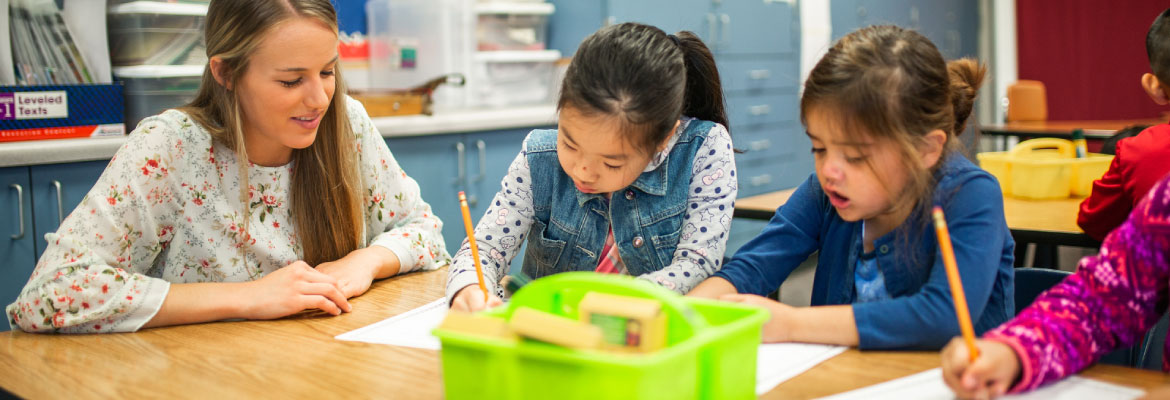

Program at a Glance
Format
Fully Online, On Campus or Hybrid
Note: Format options vary by specialization.
Total Credits
37-67
Cost per Credit
$761
Standard Completion Time
4 to 6 semesters
Accreditation
WSCUC / ACSI / CTC
Overview
The Master of Arts in Education (M.A.Ed.) is a research-oriented graduate degree that prepares you to work in a variety of academic settings. With its emphasis on professional writing, research and theory, this program is ideal for you if you aspire toward educational leadership or further graduate work in a doctoral program. And with eight distinct specialization options, the M.A.Ed. allows you to choose a route that supports your specific educational background and career interests.
Depending on your specialization, the M.A.Ed. can be completed fully online or through a blend of on-campus and online courses.
- Become a witness for Christ. As a Christian, you know that teaching is more than a career; it’s a calling. Biola’s academically rich, biblically integrated curriculum prepares you both to teach with excellence and model the love of Christ to your students and colleagues. Our faculty — who have served as teachers, principals, authors and curriculum developers — are professing Christians who care for your professional and spiritual growth, and share your passion about making an impact for Christ.
- Advance in your educational career. The M.A.Ed. develops your professional writing, expands your understanding of educational theory and provides research opportunities — all of which prepare you for career advancement or pursuance of doctoral programs. The M.A.Ed. also explores literature for the justification of curricular development or a published research thesis.
- Work around your busy schedule. The M.A.Ed. is designed with busy educators in mind. Online and evening courses make the program especially convenient for working teachers, professionals and students. Specializations requiring fieldwork must be completed during school hours.
- Specialize in your area of academic interest. As educators, the M.A.Ed. provides opportunities to conduct research and expand your knowledge in your chosen specialization.
Explore different ways you can expand your education by viewing our Learning Opportunities page.
Program Requirements
Students must meet and maintain the program requirements to successfully complete the Master of Arts in Education program.
Yes! Tell Me More!
Specializations
Curriculum and Instruction
- Licensure or Non-Licensure — Non-licensure only. For details, explore the catalog.
- Learning formats — This specialization is available fully in-person or online.
- Who is this specialization best for? — The Curriculum and Instruction specialization is for educators who want an inside look into curriculum development and educational publishing.
- What will I learn? — You will learn how to design curriculum, develop it in a publishing house, and learn how curriculum and instruction contribute to student learning and engagement across grade levels.
- What certifications will I receive? — If you successfully complete 12 credits of this specialization, you will be eligible for the institution-sponsored Certificate in Curriculum and Instruction.
Early Childhood
- Licensure or Non-Licensure — Available as licensure and non-licensure. For details, explore the catalog: licensure and non-licensure.
- Learning formats — The Early Childhood specialization is available fully in-person and online.
- Who is this specialization best for? — The Early Childhood specialization is for educators who wish to impact the development of children from birth to third grade (which includes infants, preschoolers, transitional kindergarten and early elementary) in a childcare and development program.
- What will I learn? — Because children are just beginning to develop their learning skills, it requires experienced educators who are both nurturing and skilled in early learning pedagogy. You will gain specialized knowledge in early childhood that enhances elementary-level teaching at all levels as it informs your understanding of a child’s developmental, social, academic, cultural and spiritual needs.
- What certifications will I receive? — After successfully completing this specialization, you will be eligible to apply for various Child Development Permit levels from the California Commission on Teacher Credentialing. With a Child Development Permit, you will be able to serve in various local infant, toddler, and elementary-age educational settings. Advanced Child Development Permits can be earned by completing additional coursework.
- Can I fulfill the 24 unit state-approved coursework requirements in early childhood education or childhood development" for TK and TK/kindergarten combination for Multiple Subject credentialed teachers and use it toward my degree? — Yes, we offer 24 credits of early childhood education and child development courses at the graduate level that can be used toward the M.A.Ed.
Induction/Clear Credential
- Licensure or Non-Licensure — Licensure only. For details, explore the catalog.
- Learning formats — The Induction/Clear Credential specialization is available fully online and needs to be completed in the state of California. The M.A.Ed. core and capstone courses can be completed online anywhere in the world.
- Who is this specialization best for? — The Induction/Clear Credential specialization allows full-time teachers (teaching at a California-based school or school utilizing California State Standards —public, private, or charter) who hold a California Multiple Subject or Single Subject Preliminary Credential to complete the necessary requirements to upgrade their credential to the Clear Credential through biblically integrated curriculum.
- What certifications will I receive? — Upon completion of this specialization, Biola will recommend you to the California Commission on Teacher Credentialing for your Clear Credential.
- Dual enrollment option — If you are currently enrolled in your district’s induction program, but also want to earn graduate credit for your work and receive biblical integration with the CSTP, you can simultaneously enroll in Biola's Induction/Clear Credential program. These credits can be applied to 12 credits of their M.A.Ed. specialization. These 12 credits will also only cost one-third of the normal tuition rate.
Multiple Subject Credential
- Licensure or Non-Licensure — Licensure only. For details, explore the catalog.
- Learning formats — The Multiple Subject Credential specialization coursework allows students to study in-person, in the evening or in a fully online environment. The M.A.Ed. core and capstone courses can be completed online anywhere in the world.
- Who is this specialization best for? — The Multiple Subject Credential specialization is for aspiring teachers who want to earn a California Multiple Subject Preliminary Teaching Credential as a part of their master’s program.
- What will I learn? — You will receive the necessary foundation to become a general education teacher who is prepared to teach diverse student populations in elementary schools. You will observe and participate firsthand in the methods used by cooperating teachers during fieldwork placements throughout your credential courses.
- What certifications will I receive? — Upon completion of this specialization, Biola will formally recommend you for your California Preliminary Multiple Subject Credential, authorizing you to teach all subjects in a self-contained classroom. This is the credential normally required for elementary school teachers, but can sometimes be appropriate for middle and high school teachers. Upon completion of the M.A.Ed. concentration, core and capstone courses, you will also qualify for the ACSI Teacher Certification and earn a Master of Arts in Education.
Personalized
- Licensure or Non-Licensure — Available as licensure and non-licensure. For details, explore the catalog: licensure and non-licensure.
- Learning formats — The Personalized specialization may be available fully online, in-person, or a combination of in-person and online courses. This specialization may be explored with a School of Education advisor.
- Who is this specialization best for? — The Personalized specialization is a professional degree program for educators seeking programs that will support their diverse interests and career goals.
- What will I learn? — You can select courses from up to two subject areas, such as early childhood, special education, curriculum development or Christian apologetics. Other potential subject areas that are offered from other schools at Biola may be explored with an admissions counselor.
- What certifications will I receive? — Your certifications will vary, depending on your choice of coursework.
Single Subject Credential
- Licensure or Non-Licensure — Licensure only. For details, explore the catalog.
- Learning formats — The Single Subject Credential speialization coursework allows students to study in-person, in the evening or in a fully online environment. The M.A.Ed. core and capstone courses can be completed online anywhere in the world.
- Who is this specialization best for? — The Single Subject Credential specialization is designed for aspiring teachers who want to earn a California Single Subject Preliminary Teaching Credential as a part of their master’s program.
- What will I learn? — You will receive the necessary foundation to become a general education teacher who is prepared to teach diverse student populations in specific subject areas, including the following: art, English, mathematics, music, physical education, science, social science and Spanish. You will observe and participate firsthand in the methods used by cooperating teachers during fieldwork placements throughout your credential courses.
- What certifications will I receive? — Upon completion of this specialization, Biola will formally recommend you for your California Preliminary Single Subject Credential, authorizing you to teach a specific subject. This is the credential normally required for middle school and high school teachers, but can sometimes be appropriate for elementary school teachers. Upon completion of the M.A.Ed. specialization, core and capstone courses, you will also qualify for the ACSI Teacher Certification and earn a Master of Arts in Education.
Special Education
- Licensure or Non-Licensure — Available as licensure and non-licensure. For details, explore the catalog: licensure and non-licensure.
- Learning formats — The Special Education specialization is available fully online.
- Who is this specialization best for? — The Special Education specialization is for educators who want to expand their knowledge and training to better serve students with special needs, particularly those with mild to moderate learning, emotional and intellectual disabilities.
- What will I learn? — You will be equipped to create optimal learning environments for students with diverse learning needs.
- What certifications will I receive? — If you successfully complete 12 credits of this specialization, you will have an opportunity to earn an institution-sponsored Certificate in Special Education. This certificate allows you to demonstrate to future employers that you have a basic knowledge of K-12 students with mild to moderate support needs.
- If you complete your specialization fieldwork in California, you can also apply your specialization towards earning a California Special Education (Mild/Moderate) Credential with additional coursework and requirements.
Special Education Credential (Mild to Moderate Support Needs)
- Licensure or Non-Licensure — Licensure only. For details, explore the catalog: internship and student teaching.
- Learning formats — The Special Education (Mild to Moderate Support Needs) Credential specialization is available fully online and needs to be completed in the state of California. The M.A.Ed. core and capstone courses can be completed online anywhere in the world.
- Who is this specialization best for? — The Special Education (Mild to Moderate Support Needs) Credential specialization is for aspiring teachers who want to earn the Preliminary Education Specialist (Mild to Moderate Support Needs) Instruction Credential as a part of their master’s program.
- What certifications will I receive? — Upon completion of this specialization, Biola will formally recommend you for your Special Education (Mild to Moderate Support Needs) Credential. Upon completion of the specialization, core and capstone courses, you will earn your Master of Arts in Education.
Compare Specializations
| Specialization | Base Tuition Cost | Credits | Duration | Format | Start Months |
|---|---|---|---|---|---|
| Curriculum and Instruction | $28,157 | 37 | 2 years | Online/Hybrid | January, May or August |
| Early Childhood | $28,157 | 37 | 2 years | Online/Hybrid | January, May or August |
| Induction/Clear Credential | $28,157 | 37 | 2–3 years while teaching full time | Online/Hybrid | January, May or August |
| Multiple Subject Credential | $45,660 | 60 |
2.5 years full time | Fully online (CA) or in person (La Mirada) | January, May or August |
| Personalized | $28,157 | 37 | 2 years | Fully online (CA) or in person (La Mirada) | January, May or August |
| Single Subject Credential | $40,333 | 53 |
2.5 years full time | Fully online (CA) or in person (La Mirada) | January, May or August |
| Special Education Concentration | $28,157 | 37 | 2 years | Online/Hybrid | January, May or August |
| Special Education Credential (Mild to Moderate Support Needs) | $50,987 | 67 |
2.5 years full time | Online (CA)/Hybrid | January, May or August |
Courses
What will I study as a Master of Arts in Education student?
The program has three distinct elements: core coursework, specialization-specific coursework and a capstone experience. As part of the core, you’ll have the opportunity to take such courses as the following:
- Philosophy and Values in Schools and Society
- Advanced Educational Psychology
- Educational Research and Statistics
- Advanced Curriculum and Instruction
- Research in Culture and Intercultural Instruction
- Professional Writing
- Professional Development
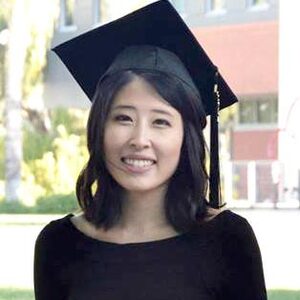
SOE prepared me with knowledge and positive attitude toward my work. I have been able to apply my knowledge to my work and to work with my coworkers and family daycare providers in positive manners. Also, I have been able to better understand and embrace difference cultures since I took classes focusing on dealing with families from different backgrounds.
M.A. in Education (Early Childhood) '17
Admissions & Deadlines
As a Christian institution, Biola seeks to admit applicants whose backgrounds clearly demonstrate scholarly aptitude, a commitment to the historic Christian faith, personal character and integrity, and a positive service-oriented motivation toward their field of study. Biola does not discriminate on the basis of the applicant's race, color, sex, socio-economic status, disability, or national or ethnic origin.
Education and GPA Requirements
- You must have a bachelor’s degree from an accredited institution by the time you plan to start coursework at Biola, with a cumulative grade point average of 3.0 (on a 4.0 scale).
- Note: If you do not meet the degree or GPA requirements above, you may still be considered for admission. Please contact the Office of Graduate Admissions office at graduate.admissions@biola.edu. If you are an international student, contact grad.international@biola.edu.
Program-Specific Requirements
- For requirement details (which vary by concentration), see "Complete program-specific admissions requirements" in the application steps section below.
English Proficiency Requirements
- If English is not your first language, you are required to display your English proficiency before admittance into a Biola University graduate program. See “English Proficiency” in the application steps section below.
Application Deadlines
- Fall Semester
- Early Action: May 1
- General: July 1
- International Students
- On Campus: June 1
- Online/Hybrid: July 1
- Spring Semester
- Early Action: October 1
- General: November 1
- International Students: October 1
- Summer Semester
- General: April 1
- General: April 1
Visit Biola
Explore our sunny Southern California campus in person or virtually. Learn more about your program of interest and the admissions process by scheduling an appointment with an admissions counselor.
Meet Your Admissions Counselor
If you have more questions about the program, admissions process or Biola in general, schedule a phone call or send an email to your admissions counselor.
Graduate Admissions Counselor
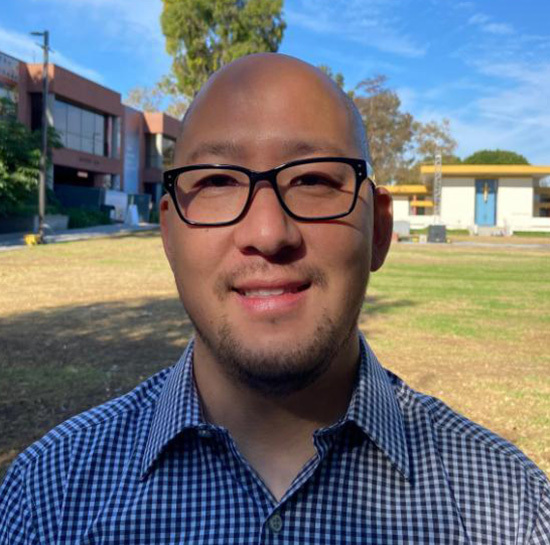
Email: steven.s.shin
Phone: (562) 903-4752 x4688
Book a Phone or Virtual Appointment
International Graduate Admissions Counselor
The Office of International Admissions serves students who are not citizens or permanent residents of the United States.
Email: grad.international@biola.edu
Book a Phone or Virtual Appointment
Application Steps
Complete and submit the online application
Submit a non-refundable $65 application fee
Submit supplemental application materials through your online application portal:
- Submit all official transcripts from previous academic institutions.
- Request official transcripts from all colleges and universities attended.
- If enrolled at the time the application is filed, be sure to request transcripts of work finished to date and final transcripts upon completion of your course of study.
- Transcripts will be considered official only when a) mailed directly from the institution to Biola, b) sent electronically through an approved vendor or c) physically delivered in an untampered envelope sealed by the institution. Final approval for admission is contingent on receiving an official transcript.
- Mail transcripts to:
Biola University Office of Graduate Admissions
13800 Biola Avenue, La Mirada, CA 90639
- Mail transcripts to:
- International Transcripts: All international transcripts should be evaluated by a credential evaluation agency like SpanTran (Biola Discount), World Education Services (WES) or Foundation for International Services (FIS). Be sure to choose "course by course report" and have SpanTran/WES/FIS send them directly to Biola University via online portal or post (13800 Biola Ave, La Mirada, CA 90639) in order to be considered official.
- Note: Additional instructions can be found in the online application.
- Note: The essay prompts can be found in the online application.
- Evidence of English proficiency is required for all students to support student success. Proficiency must be shown through one of the methods described below:
- Minimum test score on a qualifying standardized test
- TOEFL: minimum score of 100 iBT
- IELTS: minimum score of 7.5
- Duolingo: minimum score of 125
- A degree (bachelor’s, master’s or doctoral) issued by an institution where English is the medium of instruction.
- Official written communication from the institution (Registrar, Controller of Examinations Office, or Undergraduate College)
- Official degree statements or transcripts may be accepted given English is stated as the medium of instruction
- Official catalog verification
- Note: For universities from non-Anglophone countries, further language assessment may be required.
- Minimum test score on a qualifying standardized test
Complete program-specific admissions requirements:
- Writing Proficiency — Writing proficiency will be evaluated for each applicant in one or more of the following ways: a cumulative GPA of 3.5 or above, passage of the CBEST or all CSET subtests, an academic paper, the application essays, OR the GRE.
- Credential or Experience — Applicants must hold a preliminary credential or provide verification of the equivalent professional experience.
- Writing Proficiency — Writing proficiency will be evaluated for each applicant in one or more of the following ways: a cumulative GPA of 3.5 or above, passage of the CBEST or all CSET subtests, an academic paper, the application essays, OR the GRE.
- Verify Certificate of Clearance — For California residents: Verify possession of Certificate of Clearance from the California Commission on Teacher Credentialing.
- Fieldwork Eligibility (outside of California) — For non-California residents: Provide proof of eligibility to complete fieldwork in a non-California classroom.
- Credential or Experience — Applicants must hold a preliminary credential or provide verification of the equivalent professional experience.
- Writing Proficiency — Writing proficiency will be evaluated for each applicant in one or more of the following ways: a cumulative GPA of 3.5 or above, passage of the CBEST or all CSET subtests, an academic paper, the application essays, OR the GRE.
- Verify Certificate of Clearance — For those who do not hold a valid credential: Verify possession of Certificate of Clearance from the California Commission on Teacher Credentialing.
- Required Credentials — Applicants must hold a California Multiple Subject or Single Subject Preliminary Teaching Credential.
- Be a Full-Time Teacher — Applicants must be full-time teaching at a California-based school — public, private, non-public, or charter. Full-time teaching for credentialing purposes is defined as an average of four hours per day (20 hours per week) with a minimum of five hours per week being with the same group of students throughout the semester. Induction students must be in charge of instructional design and assessment of their classroom students.
- Student Access — Applicants must have access to English learners as well as GATE and/or special needs students.
- Administrator Recommendation Letter or Evaluation — Applicants must upload one of the following three documents, in this order of preference:
- Letter of recommendation from your current administrator, if available.
- Final teacher evaluation you received from your preliminary credential, teacher preparation program.
- Professional letter from someone who has observed you teaching.
- Writing Proficiency — Writing proficiency will be evaluated for each applicant in one or more of the following ways: a cumulative GPA of 3.5 or above, passage of the CBEST or all CSET subtests, an academic paper, the application essays, OR the GRE.
- Verify Certificate of Clearance — Verify possession of Certificate of Clearance from the California Commission on Teacher Credentialing.
- Verify Subject Matter Competency — At admission, applicants will need to verify subject matter competency or demonstrate evidence of continuous progress toward meeting the subject matter competency by one of the following:
- Present a letter verifying completion of a state-approved subject matter waiver program
- Present evidence of an attempt of at least one subtest of CSET
- Present proof of enrollment to take the CSET
- Present proof of enrollment in a CSET preparation course or evidence of purchasing CSET preparation materials
- Meet Basic Skills Requirements (or attempt CBEST) — Attempt the California Basic Educational Skills Test (CBEST) or have satisfied the Basic Skills Requirement (BSR).
- Fieldwork in California — Applicants must have the ability to complete fieldwork in California (for Credential portion of program). Fieldwork requirements must be completed in California.
- Writing Proficiency — Writing proficiency will be evaluated for each applicant in one or more of the following ways: a cumulative GPA of 3.5 or above, passage of the CBEST or all CSET subtests, an academic paper, the application essays, OR the GRE.
- Additional Requirements — Please note you may need to meet additional requirements depending on how you configure your Personalized concentration. Requirements such as verifying your Certificate of Clearance, credential requirements and others may apply, based on the areas of study you choose. Contact your graduate admissions counselor for more information.
- Writing Proficiency — Writing proficiency will be evaluated for each applicant in one or more of the following ways: a cumulative GPA of 3.5 or above, passage of the CBEST or all CSET subtests, an academic paper, the application essays, OR the GRE.
- Verify Certificate of Clearance — Verify possession of Certificate of Clearance from the California Commission on Teacher Credentialing.
- Verify Subject Matter Competency — At admission, applicants will need to verify subject matter competency or demonstrate evidence of continuous progress toward meeting the subject matter competency by one of the following:
- Present a letter verifying completion of a state-approved subject matter waiver program
- Present evidence of an attempt of at least one subtest of CSET
- Present proof of enrollment to take the CSET
- Present proof of enrollment in a CSET preparation course or evidence of purchasing CSET preparation materials
- Meet Basic Skills Requirement (or attempt CBEST) — Attempt the California Basic Educational Skills Test (CBEST) or have satisfied the Basic Skills Requirement (BSR).
- Fieldwork in California — Applicants must have the ability to complete fieldwork in California (for credential portion of program).
- Writing Proficiency — Writing proficiency will be evaluated for each applicant in one or more of the following ways: a cumulative GPA of 3.5 or above, passage of the CBEST or all CSET subtests, an academic paper, the application essays, OR the GRE.
- Verify Certificate of Clearance — For California residents who do not hold a valid credential: Verify possession of Certificate of Clearance from the California Commission on Teacher Credentialing.
- Fieldwork Eligibility — For non-California residents: Provide proof of eligibility to complete fieldwork in non-California classroom.
- Credential or Experience — Applicant must hold a preliminary credential or provide verification of the equivalent professional experience.
- Writing Proficiency — Writing proficiency will be evaluated for each applicant in one or more of the following ways: a cumulative GPA of 3.5 or above, passage of the CBEST or all CSET subtests, an academic paper, the application essays, OR the GRE.
- Verify Certificate of Clearance — For California residents who do not hold a valid credential — Verify possession of Certificate of Clearance from the California Commission on Teacher Credentialing.
- Verify Subject Matter Competency — At admission, applicants will need to verify subject matter competency in a core academic subject area (English, economics, reading/language arts, mathematics, multiple subjects, history, science, art, geography, civics/government and foreign language) or demonstrate evidence of continuous progress toward meeting the subject matter competency in a core academic subject area by one of the following:
- Present a letter verifying completion of a state-approved subject matter waiver program
- Present evidence of an attempt of at least one subtest of CSET
- Present proof of enrollment to take the CSET
- Present proof of enrollment in a CSET preparation course or evidence of purchasing CSET preparation materials
- Meet Basic Skills Requirement (or attempt CBEST) — Attempt the California Basic Educational Skills Test (CBEST) or have satisfied the Basic Skills Requirement (BSR).
- Fieldwork in California — Applicants must have the ability to complete fieldwork in California (for credential portion of program).
Interview with a faculty member
- After your application and all supplemental application requirements are submitted and approved, you will have an in-person or phone/video interview (if long distance or online) with a faculty member.
- Track your application status at any time. You do not have to complete the application in one sitting. You can complete a portion and finish at a later time. Your information will be saved. When you apply, to guarantee confidentiality, you will be asked to create a user name and a password, and will receive a personalized identification number. Track your application status by logging in to the online application.
- Official documents presented for admission or evaluation become part of the student’s academic file and normally cannot be returned or copied for distribution.
- International students who will be studying on campus are required to apply for an F-1 student visa. For more information, visit biola.edu/international/admitted-students.
Official Transcripts
Reference Letters
Essays
English Proficiency (required for non-native English speakers)
Curriculum and Instruction
Early Childhood
Induction/Clear Credential
Multiple Subject Credential
Personalized
Single Subject Credential
Special Education
Special Education Credential (Mild to Moderate Support Needs)
Things to Note
Tuition and Financial Aid
Biola is committed to help make your studies affordable — each school offers different scholarship, grant and loan opportunities to help finance your education.
| Cost Per Credit (2026‑27) | $761 |
|---|---|
| Full-time Tuition Per Term (Estimated) Based on 9 credit courseload | $6,849 |
| Part-time Tuition Per Term (Estimated) Based on 6 credit courseload | $4,566 |
| Total Program Tuition (Estimated) Based on total program credits and 2026‑27 cost per credit | $28,157–$50,987 |
Faculty
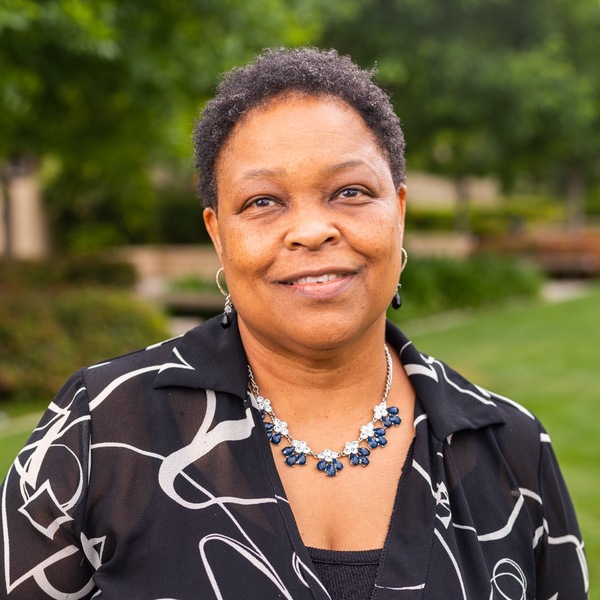
Denise Reid
Associate Professor
- PhD., Chapman University
- Multiple Subject Credential, Hope International University
- M.A., Cal State Fullerton
- B.A., Cal Poly Pomona
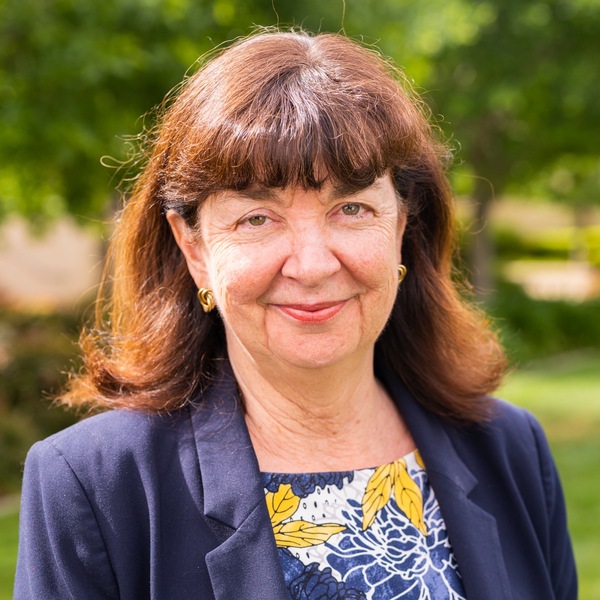
June Hetzel
Adjunct Professor and Faculty Emerita
- Ph.D., Claremont Graduate University
- M.A., Talbot School of Theology
- M.S., California State University, Fullerton
- B.A., Biola University